“The struggle of man against power is the struggle of memory against forgetting” -Milan Kundera
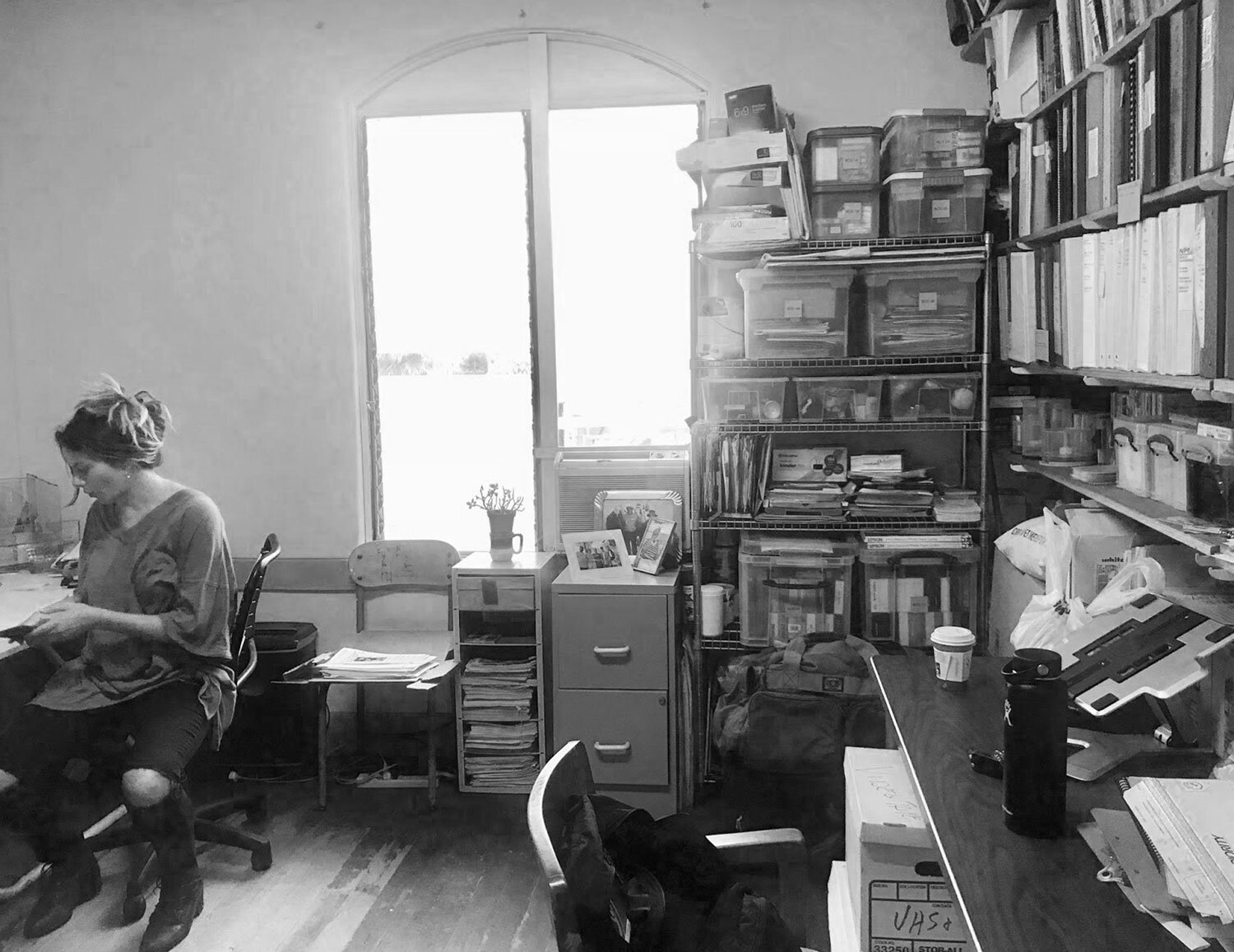
10 years ago I started my journey as a memory worker seeking spaces where archives, art, and advocacy overlap. I was interested in the question of who historically got the chance to speak up, who didn't, and why. While studying in Buenos Aires in 2012, I worked on the restoration of a damaged photographic archive in the National Archive of Human Rights and Memory. There, I developed an interest in artists who use archival materials in their artwork as a means of addressing histories of trauma and misrepresentation. Finding that artwork generated from archives often becomes archival in nature, I began to see these radical, artistic, or community based archives as essential mechanisms of memory transmission.
At NYU my thesis considered radical archives generated by artists as essential implements of knowledge production and memory transmission in regions that bear unique histories of oppression. By analyzing the archive’s construction, performative aspects, and engagement with public feelings, I found that the production of radical archives through archival art has therapeutic effects that enable healing processes not only for the individual artist but for their community.
When I retuned to L.A. in 2015, I began volunteering at Studio 526, an art studio in Skid Row with close ties to a Skid Row based performance and art group, The Los Angeles Poverty Department. I soon learned of The Poverty Department’s archive and Skid Row History Museum. As I started to engage with the group’s work and archival material, I saw that, in real time, they were doing what I believe to be most fundamental method of community based memory transmission. Their artistic endeavors continuously produce a dynamic web of knowledge that advocates for and reshapes the narrative of Skid Row through resurfaced memories and voices of its key individuals and institutions. Essentially — a place where the intersection between art and archive is so instinctive you might miss it.
From 2017-2021 I managed LAPD’s archive at the Skid Row History Museum, the cultural space that houses it. The archive documents the changing dynamics of Skid Row across time through the voices of those who live and work there, amidst pressures of criminalization and gentrification. I became involved because I wanted to play a role in giving individuals the opportunity to participate in the recording of their own history. I understand archiving as an activist practice to narrate stories that would otherwise go unheard. My archival work is motivated by a fundamental respect for and belief in the value of all human beings. When we archive something, we are claiming that it matters, that an item or story and the lives recounted in it have value, and are worthy of being remembered.
Recently edited and published in the online journal, The Interdependent, 2020.
Speaking Engagements: Hebbel am Ufer: Claiming History: Activism through Digital Archiving
Visit the Los Angeles Poverty Dept’s Walk the Talk Online Archive of Skid Row Voices, powered by Reduct.
Walk the Talk 2024: LA Times

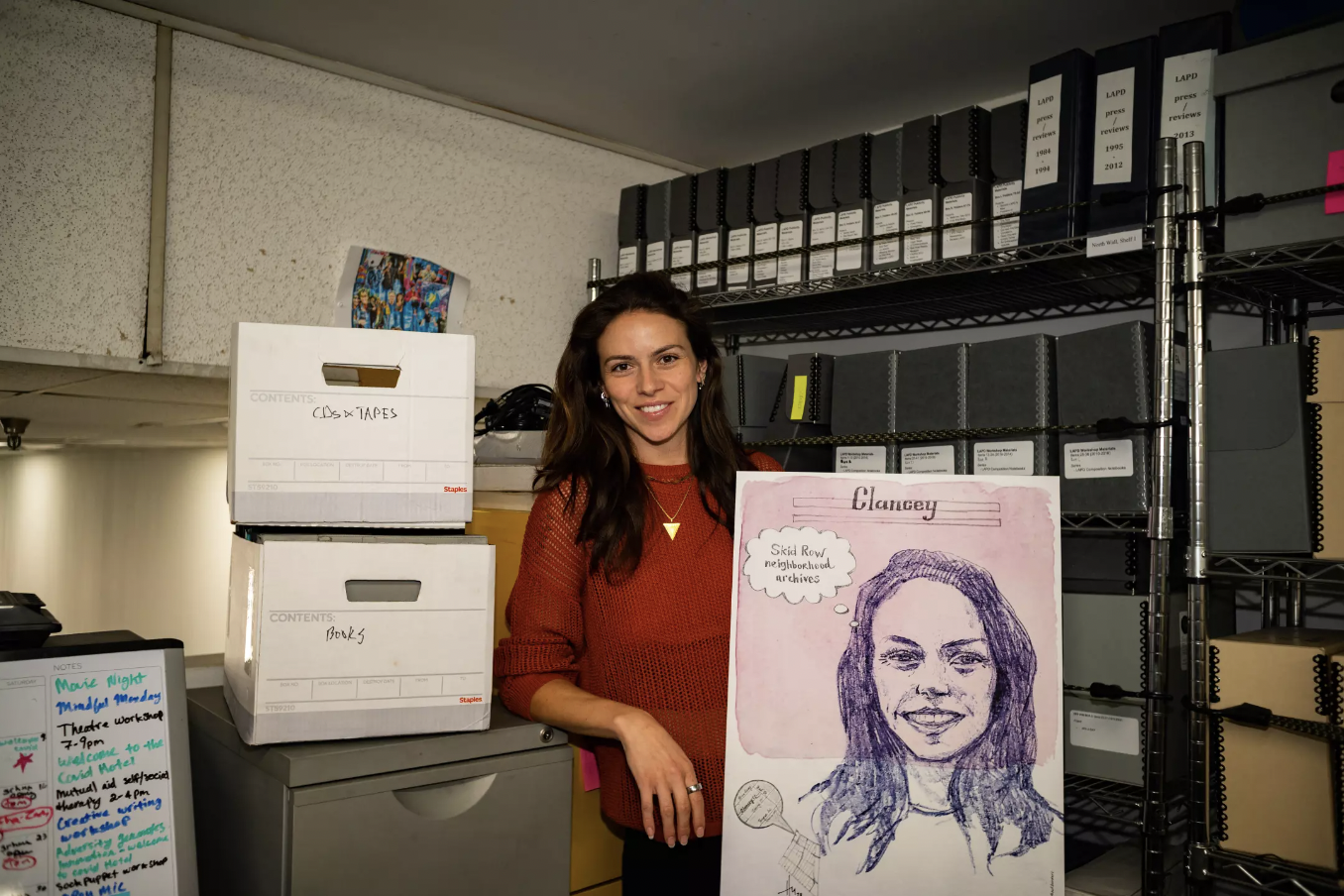
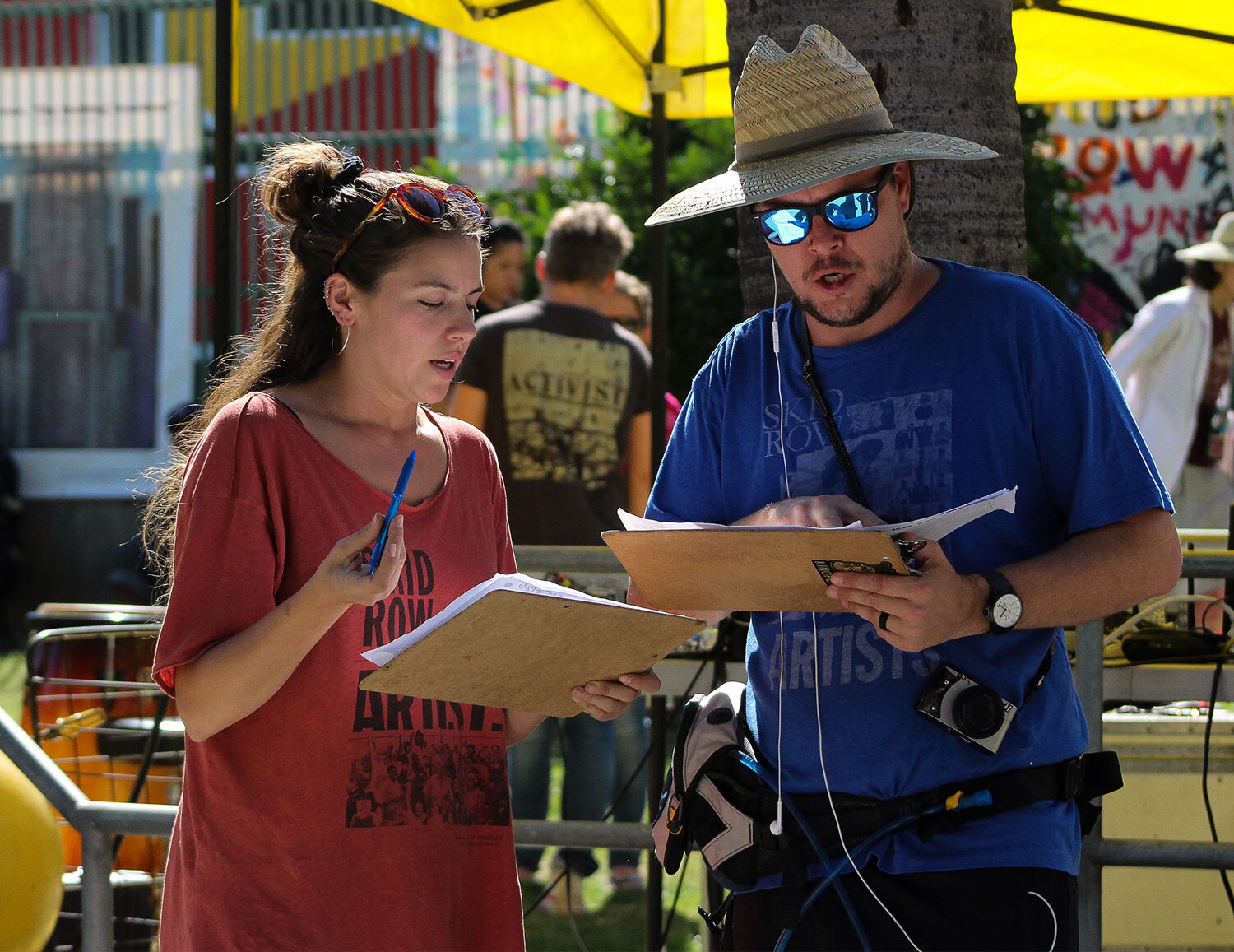
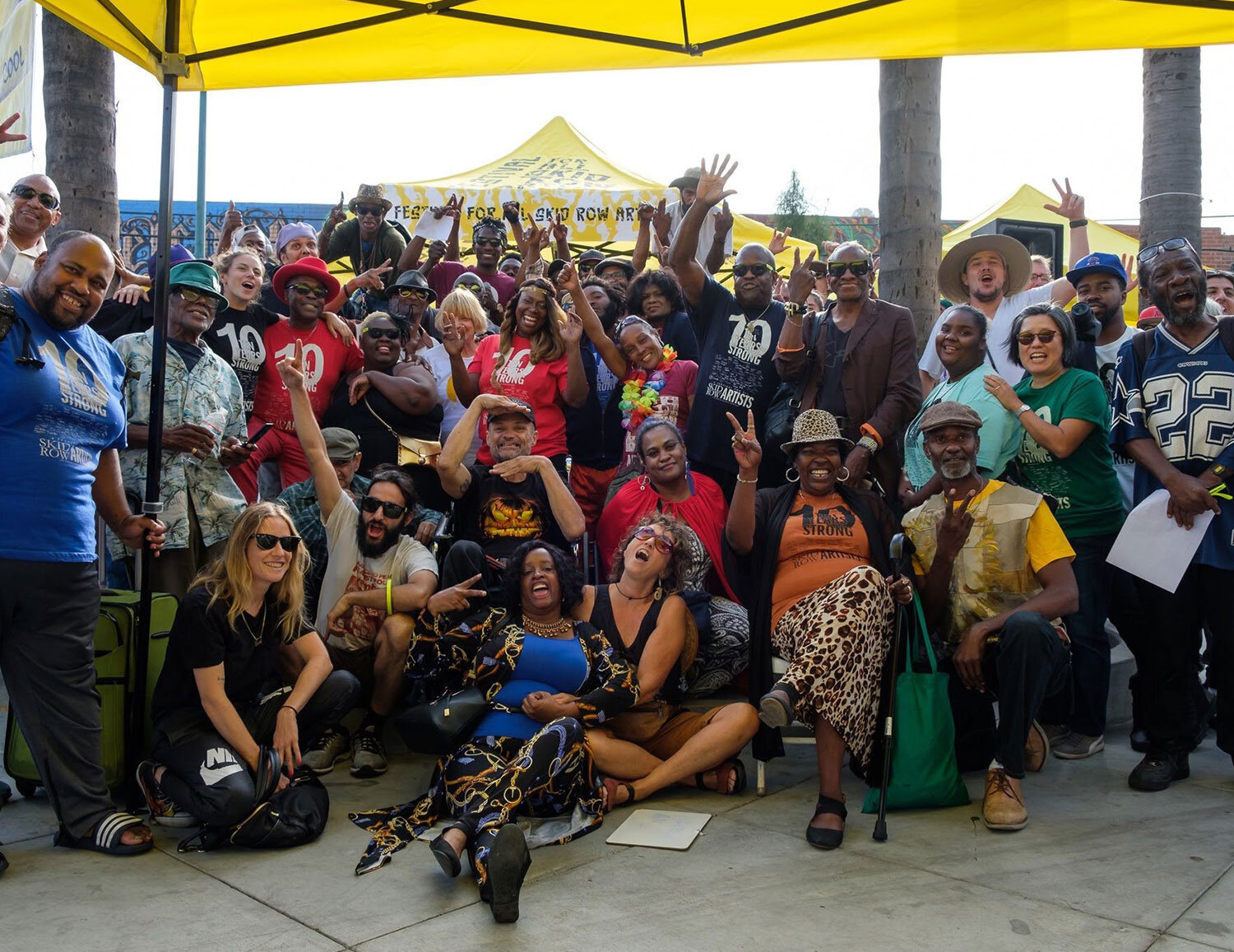
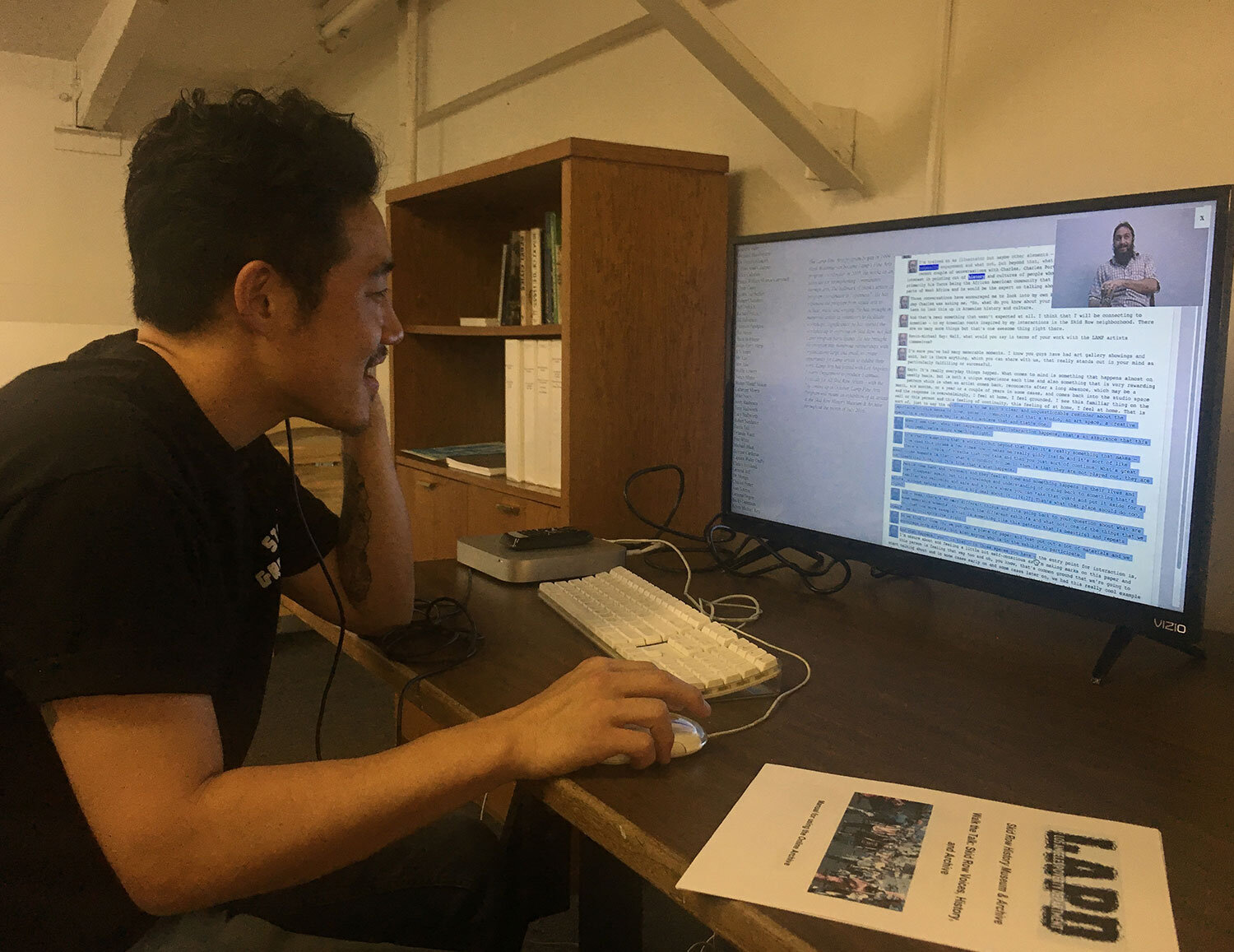
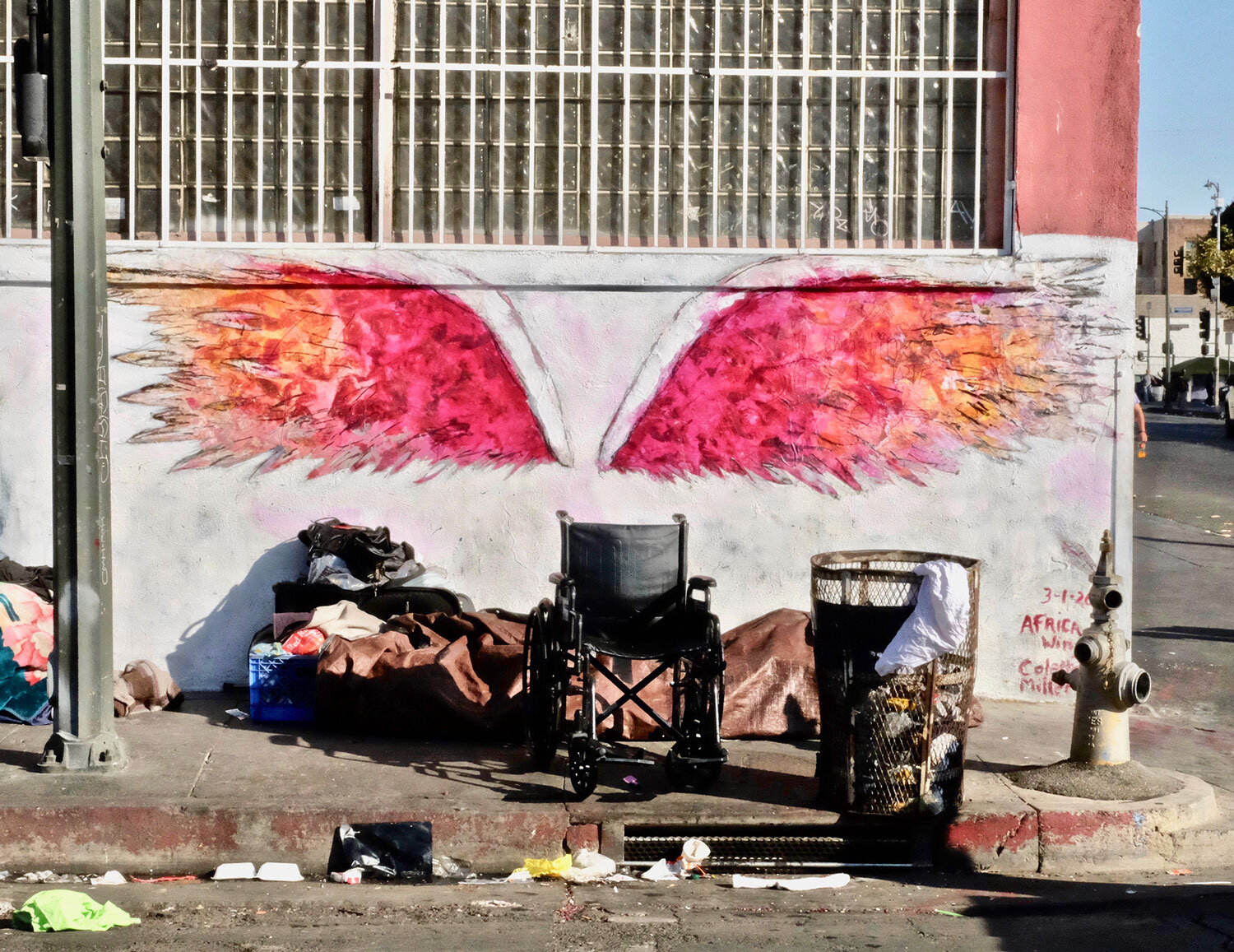
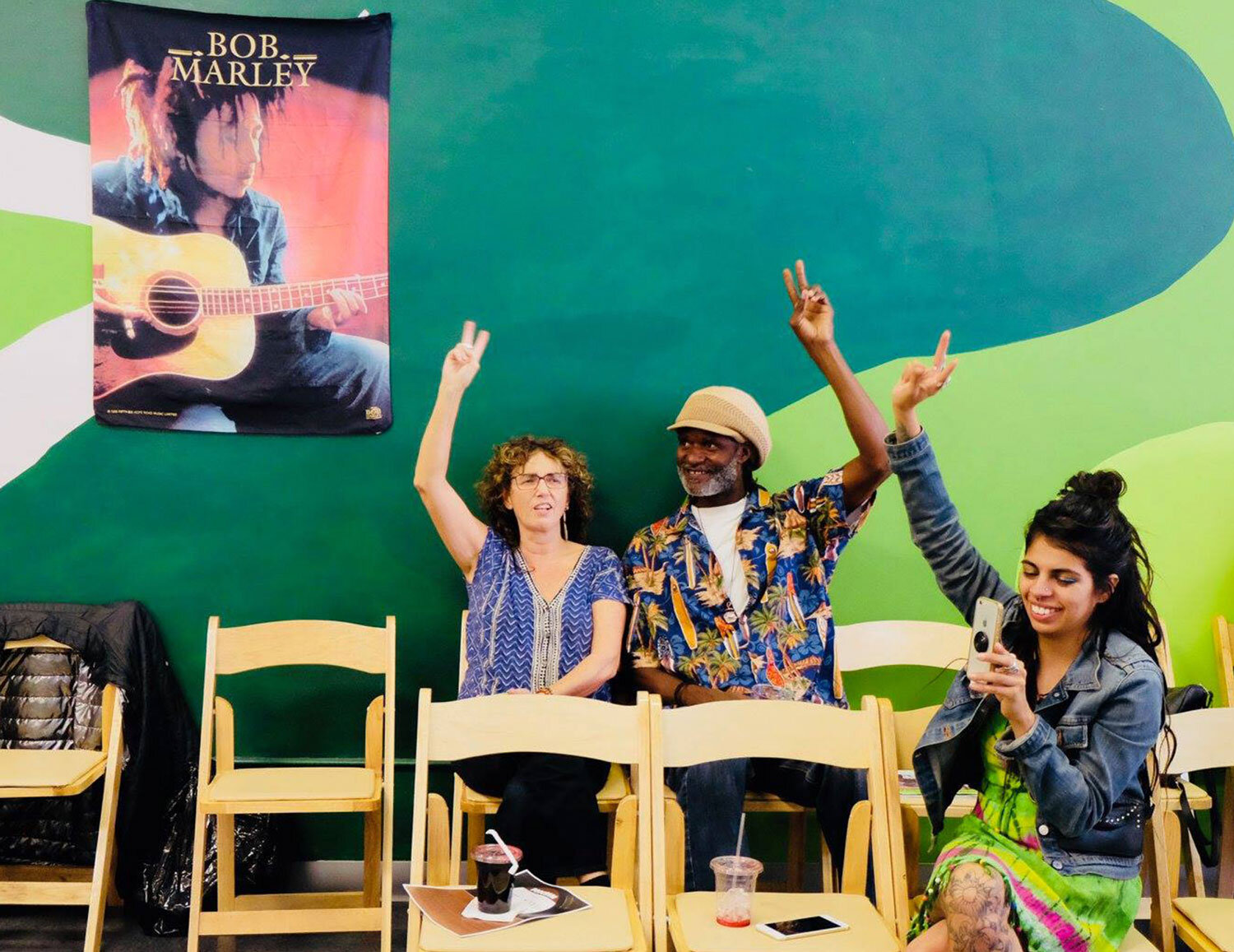
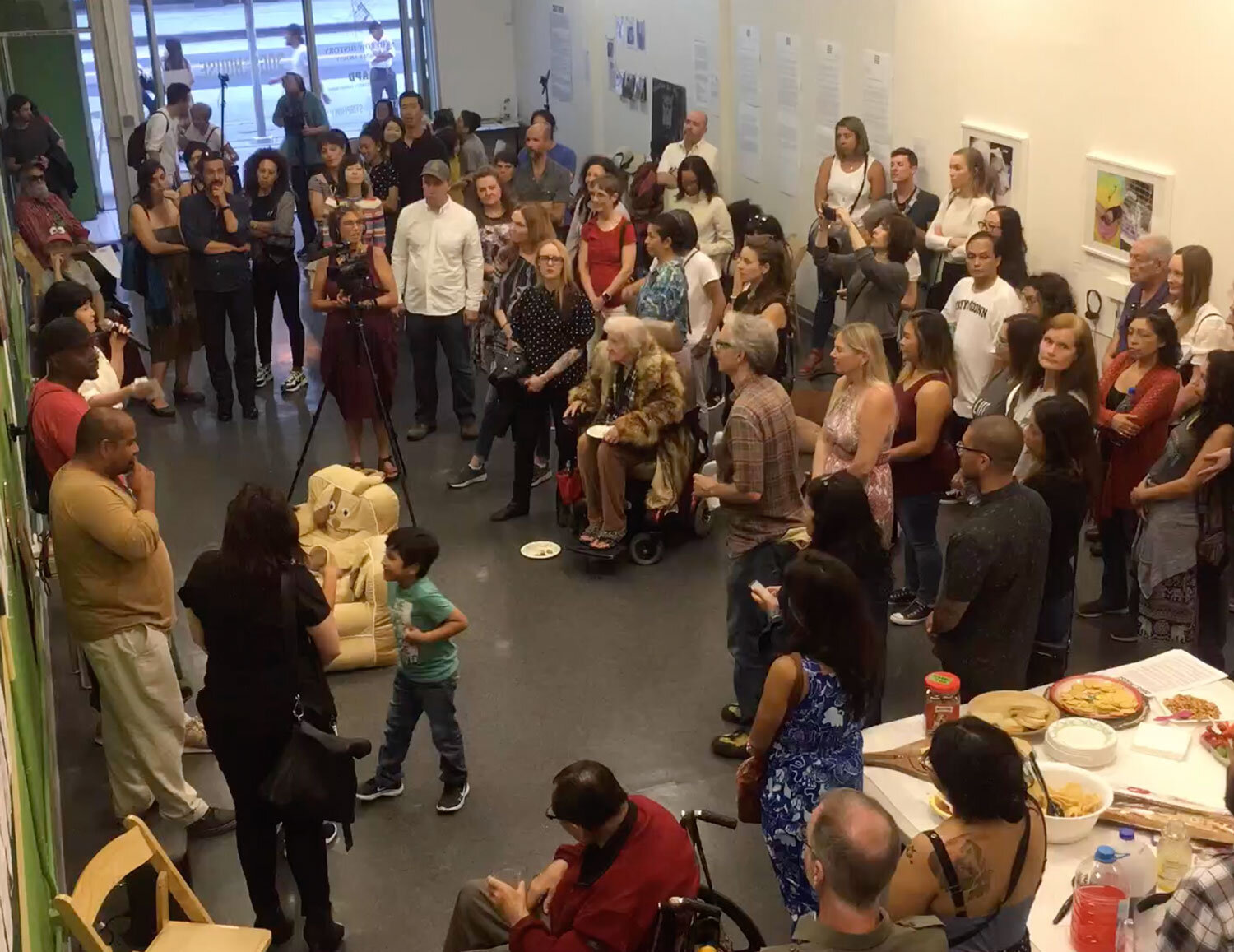

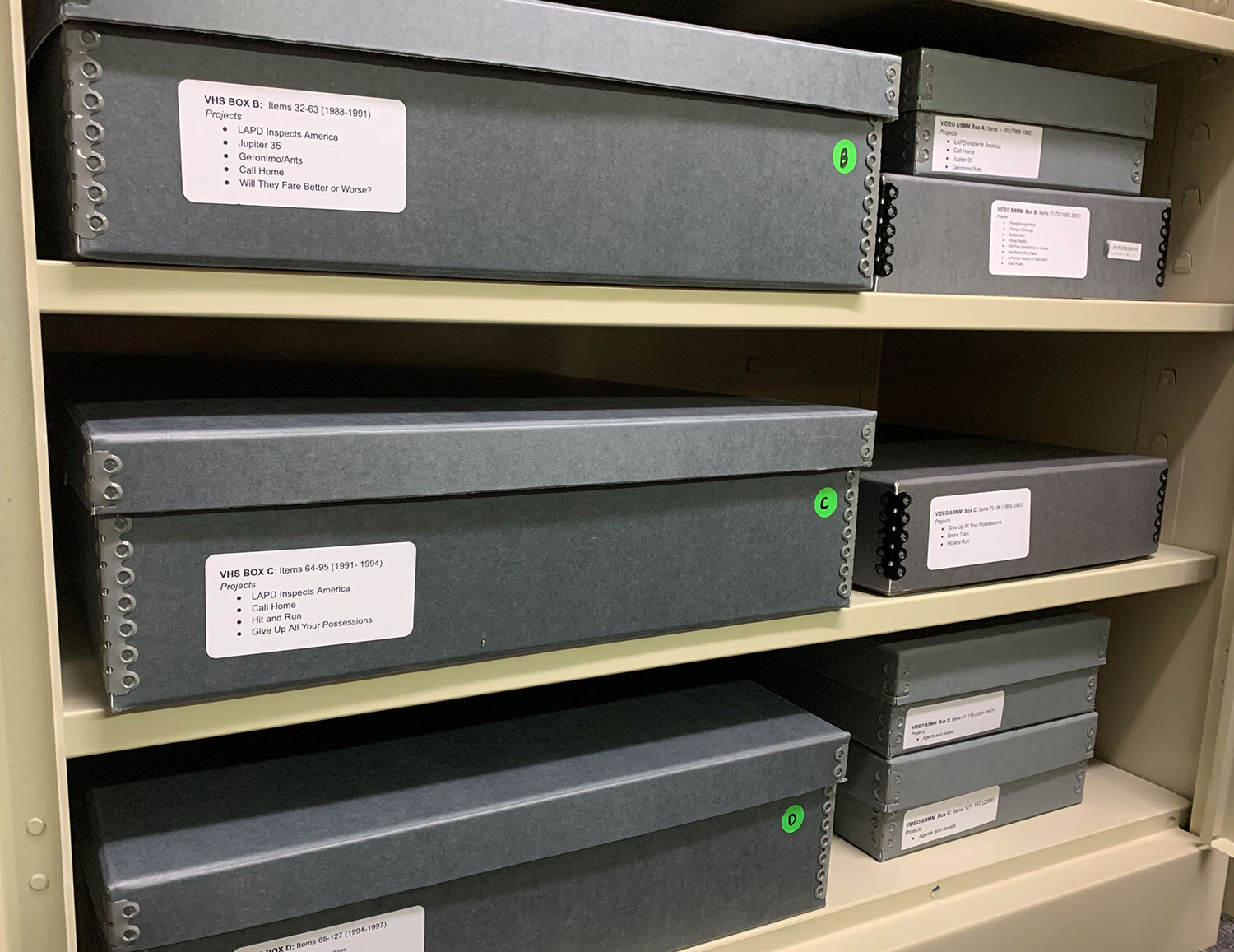
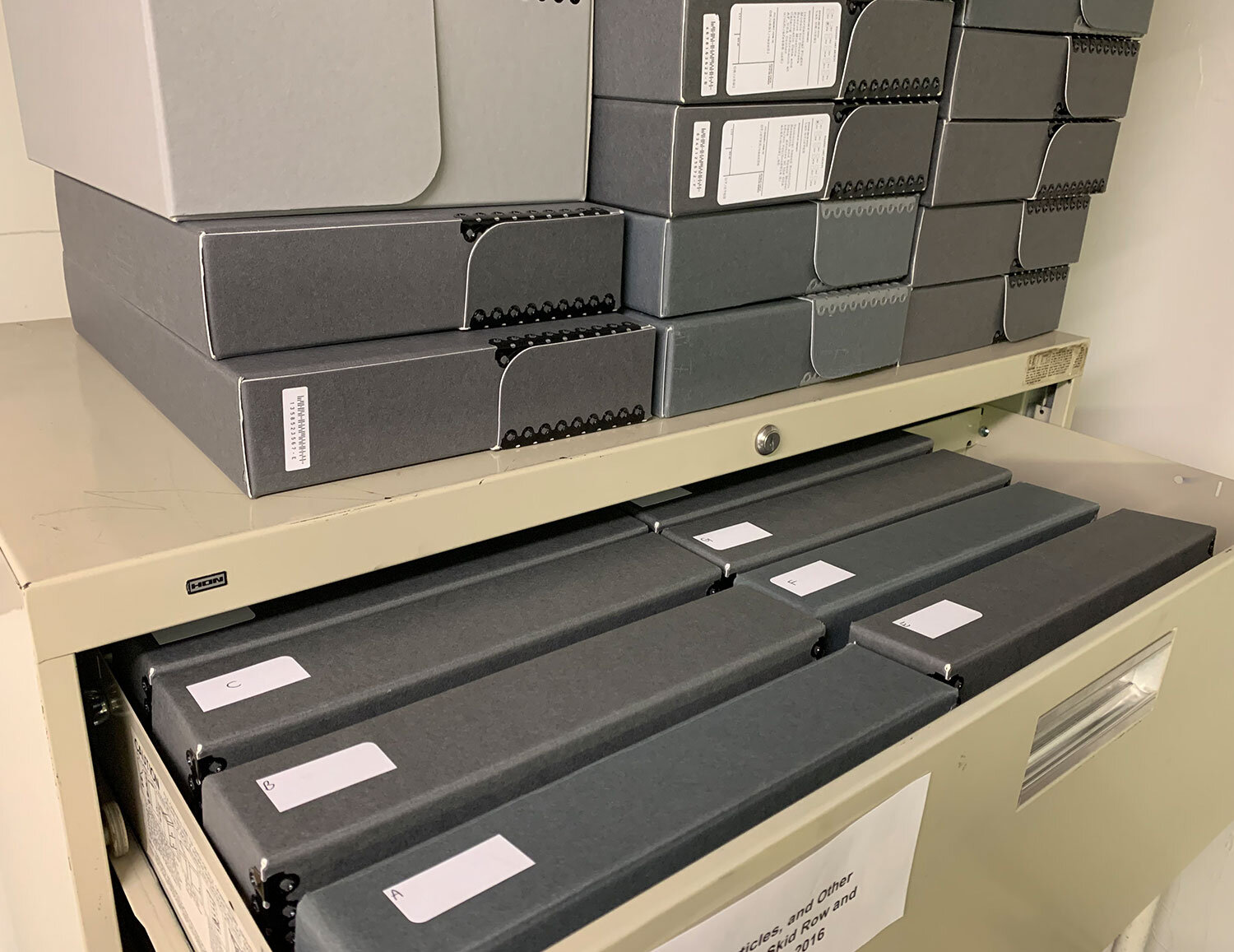

Skid Row History
Museum & Archive
Archival Projects Manager 2017-2022
The Skid Row History Museum is an exhibition and performance space curated by the Los Angeles Poverty Department, the first arts organization in Skid Row, founded in 1985 by John Malpede. The archive on the mezzanine level traces the history of the organization and the community at large through the voices of those who live and work there. I began working with L.A. Poverty department in 2015, with hands in the archive, the museum space, exhibitions, and community events. With active preservation, and the careful attention of many helping hands our archive continues to evolve and grow and has proven to be an invaluable resource for individuals, scholars and community members both in and beyond Skid Row. This year, we made our Walk the Talk Digital Archive accessible to the public. This collection contains nearly 70 long form interviews with individuals who have made a lasting impact in Skid Row and whose work displays inspiring commitment to community improvement. The struggles and triumphs of their work for over 70 years can be a model to communities facing similar pressures of gentrification, criminalization, and displacement.
Explore the Walk the Talk Digital Archive
A long term project created with Reduct Video and Rob Ocshorn - L.A. Downtown News 2020
Exhibitions at the Museum Curated by the L.A. Poverty Department
I assisted with the following exhibitions at the Skid Row History Museum:
State of the Art Skid Row, 2018
Visions of Freedom and independence, 2019
Nick Paul and Diane Prozeller, 2020







